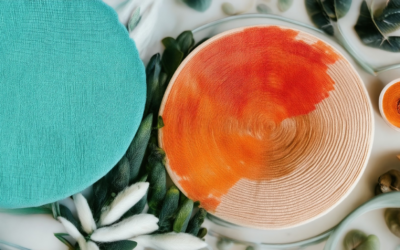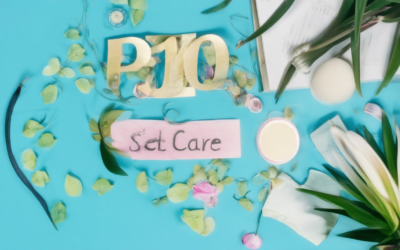In today’s fast-paced world, prioritizing self-care has become essential for maintaining overall well-being and achieving long-term success. However, many individuals struggle to establish effective self-care routines, often due to lack of understanding about what constitutes a comprehensive approach. By exploring the fundamental principles of self-care, including its connection to mental health, physical well-being, and emotional intelligence, we can unlock the secrets to creating personalized self-care routines that cater to our unique needs and goals.

The 5 Cs of Self-Care
Self-care is not a one-size-fits-all approach; it’s about finding what works best for you and making it a regular part of your routine.
- Connection
- Compassion
- Coping
- Community
- Care
Building strong relationships with family, friends, and community is essential for our emotional and mental well-being. Nurture these connections through regular communication, shared activities, and showing appreciation for one another.
Treating yourself with kindness, understanding, and patience can have a profound impact on your mental health. Practice self-compassion by acknowledging your emotions, validating your experiences, and being gentle with yourself.
Developing effective coping mechanisms helps manage stress, anxiety, and other challenging emotions. Engage in activities that bring you comfort, relaxation, and joy, such as exercise, meditation, or creative pursuits.
Belonging to a supportive community can provide a sense of belonging, purpose, and connection. Join groups, clubs, or organizations that align with your interests and values, and participate in activities that promote social interaction.
Prioritizing physical and emotional care is vital for overall well-being. Engage in self-care activities that nourish your body, mind, and spirit, such as getting enough sleep, eating a balanced diet, and practicing relaxation techniques.
By incorporating these 5 Cs into your daily life, you’ll be better equipped to manage stress, build resilience, and cultivate a deeper sense of self-awareness and compassion.
Creating a Self-Care Routine
I believe taking care of myself is essential for living a happy and healthy life.
-
Start Small
Begin by setting aside a few minutes each day for self-care. This could be as simple as taking a warm bath, practicing deep breathing exercises, or reading a book before bed.
-
Prioritize Sleep
Aim for 7-8 hours of sleep each night to help your body and mind recharge. Establish a bedtime routine to signal to your brain that it’s time to wind down.
-
Stay Hydrated
Drink plenty of water throughout the day to keep your skin looking its best and your energy levels stable. Aim for at least eight glasses of water per day.
-
Mindful Eating
Eat nutritious foods that nourish your body, and avoid overeating or skipping meals. Listen to your hunger cues and stop when you feel satisfied.
-
Exercise Regularly
Finding activities that bring you joy can help you stay motivated to exercise regularly. Whether it’s walking, running, swimming, or dancing, find what works for you and stick to it.
-
Practice Gratitude
Take time each day to reflect on the things you’re thankful for. This can help shift your focus away from stress and anxiety and cultivate a positive mindset.
-
Connect with Nature
Spend time outdoors, whether it’s walking in a park, hiking in the woods, or simply sitting in a garden or on a balcony with plants. Being in nature can help reduce stress and improve mood.
-
Learn to Say No
Set boundaries with others to protect your time and energy. Learn to say no to commitments that don’t align with your values or priorities.
-
Seek Support
Surround yourself with people who uplift and support you. Don’t be afraid to ask for help when you need it – whether it’s from friends, family, or a mental health professional.
-
Practice Self-Compassion
Treat yourself with kindness and understanding, just as you would a close friend. Be gentle with yourself, and avoid self-criticism.

The 7 Pillars of Self-Care
I believe that taking care of myself is essential for living a happy and healthy life.
-
Nutrition
Eating a balanced diet rich in whole foods, fruits, vegetables, and lean proteins helps me feel my best.
I try to cook at home most nights and meal prep for the week ahead to save time and money.
Some of my favorite healthy recipes can be found on Epicurious and The Kitchn .
-
Physical Activity
Regular exercise helps me stay energized and focused throughout the day.
I aim to get at least 30 minutes of moderate-intensity exercise per session, whether it’s a brisk walk, jog, or bike ride.
For workout inspiration, I love checking out PopSugar Fitness and Fitbit Blog .
-
Mental Wellbeing
Taking care of my mental health is just as important as my physical health.
I prioritize self-care activities like meditation, yoga, and reading to help manage stress and anxiety.
Some of my favorite mindfulness apps include Headspace and Calm .
-
Sleep
Adequate sleep is crucial for physical and mental restoration.
I aim to get 7-9 hours of sleep per night and establish a consistent bedtime routine to signal to my body that it’s time to wind down.
For sleep tips and tricks, check out The National Sleep Foundation and Sleep.org .
-
Relationships
Nurturing positive relationships with loved ones is vital for my overall wellbeing.
I prioritize spending quality time with family and friends, whether it’s through regular phone calls, video chats, or in-person visits.
For relationship advice and support, I turn to Psychology Today and HuffPost Relationships .
-
Personal Growth
Continuously learning and growing is essential for staying engaged and motivated.
I set aside time each week to learn something new, whether it’s through online courses, podcasts, or books.
Some of my favorite learning resources include Udemy and Audible .
-
Leisure Activities
Engaging in hobbies and interests outside of work and daily responsibilities helps me recharge and find joy.
I prioritize making time for activities I love, whether it’s painting, hiking, or cooking.
For inspiration and ideas, check out Brit + Co and Hobby Lobby .

5 Self-Care Strategies
I believe taking care of myself is essential for living a happy and healthy life.
-
Meditation and Mindfulness
Meditation and mindfulness have been shown to reduce stress and anxiety, improve sleep, and increase feelings of happiness and calmness.
I try to meditate for at least 10 minutes every day, focusing on my breath and letting go of any thoughts or worries.
You can start with just a few minutes a day and gradually increase the time as you become more comfortable with the practice.
There are many free meditation apps available, such as Headspace and Calm, that offer guided meditations and tracks to help you get started.
-
Exercise and Physical Activity
Regular exercise has numerous physical and mental health benefits, including reducing stress and anxiety, improving mood, and increasing energy levels.
I aim to exercise for at least 30 minutes every day, whether it’s going for a run, practicing yoga, or lifting weights.
Finding an activity you enjoy makes it easier to stick to a regular routine.
You don’t need to join a gym or buy expensive equipment – simply find something you love and make it a part of your daily routine.
-
Nutrition and Healthy Eating
Eating a balanced diet rich in whole foods, fruits, and vegetables is essential for maintaining good physical and mental health.
I try to cook at home most nights, using fresh ingredients and avoiding processed foods whenever possible.
Avoid sugary drinks and snacks, and opt for water or herbal tea instead.
Consider meal prepping or planning your meals in advance to save time and money.
-
Social Connection and Community
Building strong relationships with friends and family is crucial for our emotional and mental well-being.
I make it a point to schedule regular check-ins with loved ones, whether it’s a phone call, video chat, or in-person visit.
Joining a club or group that aligns with your interests is a great way to meet new people and build connections.
Volunteering or participating in community events is another excellent way to give back and meet like-minded individuals.
-
Self-Reflection and Journaling
Taking time to reflect on your thoughts, feelings, and experiences is essential for personal growth and development.
I try to journal at least once a week, writing down my thoughts, gratitudes, and goals.
This helps me process my emotions, identify patterns and areas for improvement, and gain insight into my behavior and decision-making.
Don’t worry too much about grammar or spelling – just let your thoughts flow onto the page.
The Three Essential Rules of Self-Care
As someone who prioritizes overall well-being, I’ve learned that self-care is not just a luxury, but a necessity.
- Rule Number One: Listen to Your Body
- Rule Number Two: Prioritize Mindfulness
- Rule Number Three: Nourish Your Spirit
Pay attention to your physical and emotional needs, and take care of yourself accordingly. Whether it’s getting enough sleep, exercising regularly, or practicing stress-reducing techniques like meditation or deep breathing, make sure to honor your body’s signals and respond to its needs.
Mindfulness is the practice of being present in the moment, without judgment or distraction. By cultivating mindfulness, you can reduce stress and anxiety, increase feelings of calm and clarity, and develop a greater sense of self-awareness.
This rule involves taking care of your emotional and spiritual needs, which may involve activities like journaling, creative expression, or spending time in nature. By nourishing your spirit, you can cultivate a deeper sense of purpose, meaning, and connection to yourself and others.
By incorporating these three essential rules into your daily routine, you’ll be better equipped to manage stress, boost your mood, and live a more balanced, fulfilling life.

What Are the 4 Main Types of Self-Care Skills?
Self-care encompasses various activities that promote overall well-being, encompassing four primary dimensions: emotional, physical, psychological, and spiritual health.
-
Emotional Health
Emotional self-care involves managing emotions, developing emotional intelligence, and cultivating resilience. This dimension focuses on recognizing, understanding, and regulating emotions to maintain emotional balance.
- Practicing mindfulness and meditation to reduce stress and anxiety
- Engaging in creative activities, such as art or music, to express emotions
- Nurturing relationships with supportive family and friends
-
Physical Health
Physical self-care prioritizes maintaining a healthy body through regular exercise, balanced nutrition, and sufficient sleep. This dimension emphasizes the importance of physical activity in promoting overall well-being.
- Engaging in regular aerobic exercises, such as walking or jogging
- Incorporating strength training into a workout routine
- Maintaining a balanced diet rich in fruits, vegetables, and whole grains
-
Psychological Health
Psychological self-care involves developing coping mechanisms, practicing self-compassion, and fostering a positive mindset. This dimension focuses on mental well-being and resilience.
- Developing problem-solving skills and learning from mistakes
- Prioritizing self-care activities, such as reading or taking a relaxing bath
- Cultivating gratitude and positivity through journaling or affirmations
-
Spiritual Health
Spiritual self-care encompasses connecting with something greater than oneself, whether through faith, nature, or personal values. This dimension emphasizes the importance of meaning and purpose in life.
- Practicing prayer or meditation to connect with a higher power
- Engaging in outdoor activities, such as hiking or gardening, to appreciate nature
- Exploring personal values and passions to discover purpose
Conclusion:
By incorporating these four dimensions of self-care into daily life, individuals can cultivate a deeper sense of well-being, resilience, and fulfillment. Prioritizing emotional, physical, psychological, and spiritual health promotes overall well-being and sets the foundation for a happy, healthy life.




0 Comments